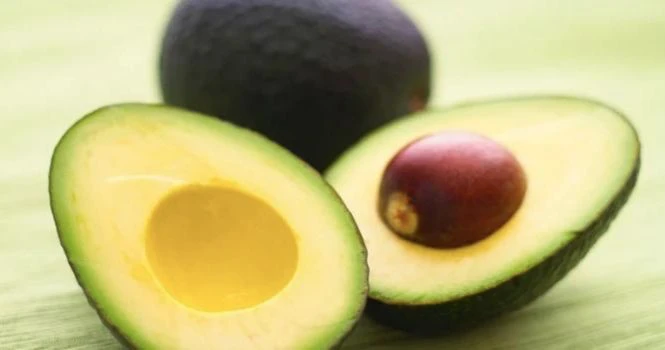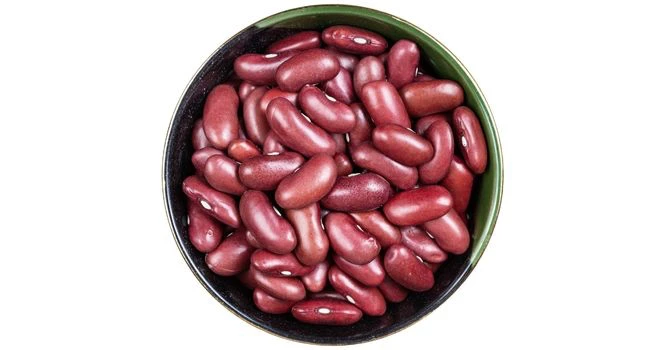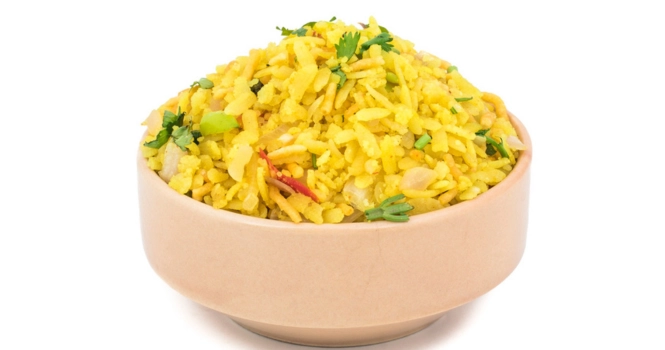Avocados have skyrocketed in popularity over recent years, earning their place as a staple in many diets worldwide.
But what makes this humble green fruit so beloved?
The answer lies in the unique nutritional profile of the avocado.
We will look into Avocado Fruit Nutrition, it’s Health Benefits and Nutritional Facts
Avocado is known by different names in the world,
- Hindi: एवोकाडो , makkhan phal (Avocado), Butter Fruit
- Kannada: ಆವಕಾಡೊ, ಬೆಣ್ಣೆಹಣ್ಣು” (pronounced: bennehannu) (Avakado)
- Spanish: Aguacate (pronounced: ah-gwah-CAH-teh)
- Arabic: الأفوكادو (Al’afukado)

Avocados grow on trees. The avocado tree, scientifically known as Persea americana, is a member of the laurel family. These trees can grow to be quite large, reaching up to 66 feet (20 meters) in height, although they are often pruned to make harvesting easier.
Avocado Fruit Tree

Avocados Types
Avocados come in a variety of shapes, sizes, and flavors. There are hundreds of avocado varieties, but a few of them are more common and widely available. Here are some of the main types of avocados:
1. Hass:
The Hass avocado is the most common variety. It has a distinctive pebbly skin that turns from green to purplish-black as it ripens. The flesh is creamy and has a nutty taste.
2. Fuerte:
This is a hybrid between the Mexican and Guatemalan avocado species. It has a pear shape and smoother skin compared to the Hass. Fuerte avocados have a creamy texture and a slightly nutty flavor.
3. Bacon:
Bacon avocados have smooth, green skin and are more oval in shape. They have a lighter flavor and a less creamy texture compared to the Hass variety.
4. Zutano:
Similar in appearance to the Bacon avocado, Zutano avocados have shiny, yellow-green skin and a slightly sweet taste. Their texture is less creamy than the Hass.
5. Pinkerton:
This variety has a long, pear-shaped fruit with pebbly green skin. The flesh is creamy, and the taste is similar to the Hass.
6. Gwen:
Similar to the Hass in taste and texture, Gwen avocados have plump, round bodies and slightly pebbly skin. The skin is easy to peel, and the flesh has a creamy, nutty flavor.
7. Reed:
Reed avocados are round and slightly larger than Hass avocados. They have a thick, slightly knobby skin and a creamy texture. They are usually in season during the summer months.
8. Puebla:
With a large, pear-shaped fruit, Puebla avocados have bumpy skin and a high-fat content, making them very creamy and rich in flavor.
9. Lamb Hass:
This is a variant of the Hass avocado and is larger in size. It has a similar taste and texture to the Hass avocado.
10. Choquette:
This variety is usually found in Florida and is larger than the Hass. It has smooth, glossy skin and a mild flavor.
11. Nabal:
A Guatemalan variety, Nabal avocados are round and have very rich, creamy flesh with a slight nutty flavor.
These are just a few examples, and there are many more avocado varieties around the world, especially in avocado-growing regions such as Mexico, California, Florida, and parts of Central and South America. Different varieties might be available depending on the region and season.
Is Avocado a Fruit or a Vegetable?
An avocado is technically a fruit, more specifically, a single-seeded berry. A fruit is the mature ovary of a flower, containing the seed or seeds, and avocado fits this description.
While it may not be sweet like many fruits we’re accustomed to, its botanical classification still stands. It’s worth noting that in culinary contexts, avocado is often treated as a vegetable due to its savory flavor profile.
Is Avocado a Protein Source?
Yes, avocados do contain protein, but they are not typically considered a high-protein food. A standard serving of avocado (about one-fifth of a medium avocado or approximately 40 grams) contains about 1 gram of protein.
However, avocados are better known for their high content of healthy monounsaturated fats, which are good for heart health. They are also packed with dietary fiber, and are rich in vitamins and minerals, including potassium, vitamin K, vitamin E, vitamin C, and B-vitamins.
Nutritional Facts of Standard sized Avocado (approximately 200g)
| Nutrient | Amount per 200g Avocado |
| Calories | 320 |
| Protein | 4g |
| Total Fat | 29g |
| – Saturated Fat | 4.2g |
| – Monounsaturated Fat | 19.7g |
| – Polyunsaturated Fat | 3.6g |
| Total Carbohydrates | 17g |
| – Dietary Fiber | 13.5g |
| – Sugars | 1.4g |
| Cholesterol | 0mg |
| Sodium | 14mg |
| Potassium | 975mg |
| Vitamin C | 20mg |
| Vitamin K | 42mcg |
| Vitamin E | 4.2mg |
| Vitamin B6 | 0.4mg |
| Folate | 165mcg |
| Magnesium | 58mg |
Why Are Avocados So Costly for the Common Man?
Avocado is often considered a pricey fruit for several reasons, including water consumption, supply and demand dynamics, production costs, and distribution logistics. Here are some factors that contribute to the high price of avocados:
1. Water Consumption:
Avocado trees require a significant amount of water to grow. In regions where water is scarce or expensive, this can substantially increase the cost of production. For example, it is estimated that it takes over 70 gallons of water to produce a single avocado in some regions. The high water usage can also lead to environmental concerns.
2. Supply and Demand:
The popularity of avocados has been on the rise, especially in the United States and Europe. As a trendy and healthful food, demand for avocados has soared. When demand exceeds supply, prices tend to go up.
3. Seasonal Variations:
The availability of avocados varies throughout the year. During off-seasons, avocados may be more scarce, causing prices to rise.
4. Production Costs:
In addition to water, the cost of labor, land, fertilizers, and other inputs required for avocado farming can be high. This is especially true in countries with higher labor costs.
5. Distribution and Logistics:
Avocados are delicate fruits that require careful handling and controlled atmospheres during transportation. The costs associated with transporting avocados from the farm to the consumer can be significant, especially when they are being shipped internationally.
6. Import Taxes and Tariffs:
For countries that import avocados, tariffs and import taxes can add to the cost. Additionally, any trade restrictions or issues can impact the availability and pricing.
7. Pests and Diseases:
Avocado crops are susceptible to various pests and diseases. Addressing these issues can be costly for farmers, and in some cases, it can lead to crop losses which in turn reduce supply and increase prices.
What’s the Benefits of Avocado?
Avocado or butter fruit as its commonly called, is a nutritious fruit with various health benefits. Here are some of the benefits of including avocados in your diet:
1. Heart Health:
They are rich in monounsaturated fats, which are heart-healthy fats, which help lower bad cholesterol levels while increasing good cholesterol. They also contain potassium which is known to control blood pressure.
2. Fiber Content:
They are high in fiber, which is beneficial for the digestive system. Fiber can help prevent constipation, maintain a healthy digestive tract, and reduce the risk of colon cancer.
3. Weight Management:
The fiber in avocados can also help with weight management, as it makes you feel full and satisfied, potentially reducing calorie intake.
4. Eye Health:
They are a good source of the antioxidants lutein and zeaxanthin, which are important for eye health and can reduce the risk of macular degeneration and cataracts.
5. Absorption of Nutrients:
Certain nutrients need fat to be absorbed by the body. Including avocado in meals can enhance the absorption of fat-soluble vitamins like A, D, E, and K, as well as other antioxidants.
6. Bone Health:
Avocados contain Vitamin K, which is essential for bone health. Vitamin K is important for bone mineralization and the metabolism of calcium.
7. Reducing Inflammation:
The monounsaturated fats, antioxidants, and phytochemicals in avocados can have anti-inflammatory effects, which might be beneficial for reducing the risk of inflammatory diseases like arthritis.
8. Healthy Skin and Hair:
They are rich in Vitamin E, which is an antioxidant that helps protect skin from oxidative damage. Vitamin E along with the healthy fats in avocados can also contribute to healthy hair.
9. Cancer Prevention:
While research is still ongoing, there is evidence to suggest that certain compounds in avocados may have the potential to inhibit or prevent the growth of cancer cells.
10. Blood Sugar Regulation:
The monounsaturated fats in avocados can be beneficial in improving insulin sensitivity and thus help in regulating blood sugar levels.
11. Boosting Mood:
The folate and Vitamin B6 found in avocados can help in the production of neurotransmitters such as serotonin, which is known to stabilize mood.
It’s important to note that while avocados have many health benefits, they are also high in calories due to their fat content. Including them as a part of a balanced diet can be beneficial for overall health.
Let’s see the benefits in Pregnancy;
Benefits of Avocado in Pregnancy
Avocado can be a beneficial addition to the diet during pregnancy due to its rich nutrient content. Here are some of the benefits of consuming avocados while pregnant:
1. Folate:
Avocados are a good source of folate, which is crucial during pregnancy. Folate is essential for the proper development of the baby’s brain and spinal cord. It can also reduce the risk of neural tube defects such as spina bifida.
2. Healthy Fats:
The monounsaturated and polyunsaturated fats in avocados are beneficial for both the mother and the developing fetus. These fats are essential for the development of the fetal brain, skin, and tissues.
3. Vitamin K:
Vitamin K is important for blood clotting. Consuming adequate amounts of Vitamin K can help in preventing Vitamin K deficiency bleeding in newborns.
4. Potassium:
Avocados are rich in potassium, which can help balance fluids and electrolytes in the mother’s body and is essential for the baby’s growth.
5. Fiber:
The high fiber content in avocados can help relieve constipation, which is a common issue during pregnancy. It also aids in digestion and helps in maintaining a healthy weight.
6. Vitamin C:
This vitamin, found in avocados, is important for the absorption of iron and the development of the baby’s immune system. It also helps in the formation of collagen, which is essential for the development of the baby’s skin, cartilage, tendons, and bones.
7. Vitamin E:
Vital for protecting cells from oxidative stress, Vitamin E is another nutrient that is present in avocados and can be beneficial for both the mother and the developing baby.
8. Vitamin B6:
This vitamin, found in avocados, is involved in the development of the baby’s brain and nervous system. It can also help alleviate nausea and morning sickness during pregnancy.
9. Choline:
Avocados contain choline, which is important for brain and nerve development in the unborn child.
10. Blood Sugar Regulation:
Avocados have a low glycemic index and can help stabilize blood sugar levels, which is beneficial for pregnant women, especially those who are at risk for gestational diabetes.
While avocados are generally safe and healthy, it’s always a good practice to maintain a balanced diet during pregnancy. Additionally, it’s advisable for expecting mothers to consult their doctor regarding their diet and nutrition during pregnancy.
Are Avocados Good for Weight Loss?
Avocados can be a beneficial addition to a weight loss diet when consumed in moderation. Here’s why avocados can be good for weight loss:
1. Rich in Fiber:
Avocados are high in fiber, which can help keep you feeling full for longer periods of time. This can lead to a reduced appetite and lower calorie intake, which is beneficial for weight loss.
2. Healthy Fats:
The monounsaturated fats in avocados can also contribute to satiety. While avocados are calorie-dense due to their fat content, these fats are healthy and can be part of a balanced diet aimed at weight loss.
3. Low in Carbohydrates:
Avocados are relatively low in carbohydrates, which can be beneficial if you are following a low-carbohydrate diet for weight loss.
4. Low Glycemic Index:
Avocados have a low glycemic index, meaning they don’t cause rapid spikes in blood sugar levels. Foods with a low glycemic index can be more satisfying and help in weight management.
5. Nutrient-Dense:
When you are trying to lose weight, it’s important to consume nutrient-dense foods that provide essential vitamins and minerals without too many calories. Avocados are packed with nutrients, making them a good choice for a weight loss diet.
6. Substitute for Unhealthy Fats:
Using avocado as a substitute for less healthy fats (like mayonnaise or butter) in sandwiches and salads, for example, can make meals more nutritious and supportive of weight loss goals.
However, it is important to be mindful of portion sizes when consuming avocados, as they are calorie-dense due to their fat content. Including avocados as part of a balanced diet, combined with regular physical activity, can be beneficial for weight loss and overall health.
How to eat Avocado Fruit ?
Avocado is a versatile fruit that can be consumed in a variety of ways. Here’s a guide on how to eat an avocado and different ways you can incorporate it into your meals:
Basic Preparation:
1. Cutting the Avocado:
Using a sharp knife, cut the avocado lengthwise around the seed. Twist the two halves apart.
2. Removing the Seed:
To remove the seed, you can either use a spoon to scoop it out, or you can (carefully) whack the knife into the seed and twist it out.
3. Scooping out the Flesh:
Use a spoon to scoop out the flesh from the skin. Alternatively, you can make slices while the flesh is still in the skin by using a knife and then use a spoon to scoop them out.
Different Ways to Eat Avocado:
1. Fresh Slices or Chunks:
Eat it raw by slicing or cutting the flesh into chunks. You can add a sprinkle of salt, pepper, or a drizzle of lemon juice for added flavor.
2. Avocado Toast:
Mash avocado and spread it on a slice of bread. You can top it with salt, pepper, chili flakes, or any other seasoning and toppings like tomatoes, radishes, or a poached egg.
3. Guacamole:
Mash avocados and mix with chopped onions, tomatoes, cilantro, lime juice, salt, and pepper to make guacamole. It’s great as a dip for chips or a topping for dishes.
4. In Salads:
Add avocado slices or chunks to salads. The creamy texture of avocados pairs well with various salad ingredients.
5. Smoothies:
Blend avocado with milk, yogurt, or juice along with other fruits like bananas or berries to make a creamy and nutritious smoothie.
6. Avocado Dressing:
Blend avocado with lime juice, olive oil, garlic, and herbs to make a creamy salad dressing.
7. Stuffed Avocado:
Halve an avocado and remove the pit. Fill the hole with ingredients like tuna salad, chickpeas, or eggs, and bake or eat as is.
8. Avocado Pasta Sauce:
Blend avocado with garlic, basil, olive oil, lemon juice, and parmesan to make a creamy pasta sauce.
9. Sushi:
Avocado is a common ingredient in sushi rolls, where it’s often paired with fish, rice, and seaweed.
10. Desserts:
Avocados can be used in desserts! Blend them with cocoa powder, sweetener, and vanilla for a healthier version of chocolate pudding or use them in baking for a moist texture.
Remember that avocado browns quickly once cut open due to oxidation. To preserve its color, it’s a good idea to add lemon or lime juice to the cut avocado, and keep it in an airtight container if storing in the refrigerator.
Side Effects of Avocado
While avocado is a highly nutritious fruit and beneficial for most people, there are some potential side effects or considerations to be aware of:
1. Calories and Fat Content:
Avocados are high in calories and fats, and consuming them in excessive amounts may contribute to weight gain if it leads to consuming more calories than needed.
2. Allergies:
Some people might be allergic to avocados. This is especially common among individuals who have a latex allergy, as there is a known cross-reactivity between latex and avocados known as latex-fruit syndrome.
3. Medication Interactions:
Avocado can affect the absorption of certain medications. For example, it is high in Vitamin K, which can interfere with blood-thinning medications like warfarin. It’s always wise to consult your healthcare provider if you are on medication and have concerns about interactions with foods like avocado.
4. Oral Allergy Syndrome:
Some people experience an itching sensation in the mouth or mild swelling of the lips and throat after consuming avocado. This is called oral allergy syndrome and is usually a reaction to the pollen proteins in avocado.
5. Liver Issues:
There have been reports of avocado supplements causing liver damage. However, this is not related to consuming the fruit itself, but rather to extracts and supplements which might be processed differently.
6. Gastrointestinal Discomfort:
For some individuals, consuming large amounts of avocado may cause gastrointestinal discomfort or bloating due to the high fiber content.
7. Hypersensitivity:
Some people might have a hypersensitivity to avocados causing mild stomach ache or other symptoms. This is different from an allergy, as it does not involve the immune system.
8. Not FODMAP Friendly:
For those following a low FODMAP diet for irritable bowel syndrome (IBS), avocados contain polyols, which are a type of carbohydrate that can be problematic for some people with IBS. (FODMAP diet is a “Fermentable Oligosaccharides, Disaccharides, Monosaccharides, and Polyols” diet.)
9. Choking Hazard:
Like many fruits, the pit and the slippery nature of the avocado flesh could potentially be a choking hazard, especially for young children. It is important to remove the pit and cut the avocado into appropriate sizes.
In general, for most people, consuming avocados as part of a balanced diet is not only safe but beneficial. However, it is always good to be aware of potential side effects especially if you have allergies or are on certain medications. As with any food, moderation is key.
Frequently Asked Questions
What Is an Avocado List of Benefits?
- Supports heart health.
- Aids in digestion due to high fiber content.
- Helps in maintaining healthy skin and hair.
- Contributes to weight management.
- Enhances absorption of certain nutrients.
- May reduce the risk of cancer (though research is ongoing).
- Supports eye health.
- Has anti-inflammatory properties.
- Helps regulate blood sugar levels.
- Boosts mood by supporting neurotransmitter production.
What Is the Benefit of Eating Avocado Everyday?
Eating avocado daily can help in getting a consistent intake of healthy fats, fiber, and various vitamins and minerals. It can support heart health, improve digestion, and contribute to overall well-being.
Can We Eat Avocado Fruit Daily?
Yes, you can eat avocado daily as part of a balanced diet. However, because they are high in calories, it’s important to consume them in moderation.
Which Vitamin Is Avocado?
Avocado is rich in several vitamins including Vitamin K, Vitamin C, Vitamin E, Vitamin B5, Vitamin B6, and folate (Vitamin B9).
How Much Avocado per Day?
A common serving size is about one-half of an avocado. This provides a good amount of nutrients without too many calories. The right amount for an individual can vary based on dietary needs and preferences.
When to Eat Avocado?
Avocado can be eaten at any time of the day. It’s versatile and can be included in breakfast (like on toast or in a smoothie), lunch (in salads or sandwiches), or dinner (as guacamole or a side dish).
Can I Eat Avocado at Night?
Yes, you can eat avocado at night. It contains magnesium which can have a calming effect and potentially help with sleep.
Is Avocado Good for Your Hair?
Yes, avocado is good for hair. The oils and proteins in avocados can help to smooth and moisturize the hair, while the Vitamin E can promote a healthy scalp.
Is Avocado Good for the Skin?
Yes, avocado is beneficial for the skin. Its fatty acids can moisturize the skin, and its antioxidants like Vitamin C and E can help combat oxidative damage that contributes to aging and skin damage.
When Not to Eat Avocado?
You should avoid eating avocados if you are allergic to them. Also, it’s best not to consume avocados that are overripe or have mold, as they may not be safe to eat. If you are on medication that interacts with Vitamin K or have been advised by a healthcare provider to avoid avocados for any specific health reason, you should follow that guidance.
Are Indian Avocados Healthy?
Yes, Indian avocados are healthy, just like avocados from other regions. They are rich in healthy fats, fiber, and various vitamins and minerals, and offer similar health benefits.
Why Is Avocado Famous?
Avocado is famous for its unique texture, rich flavor, and nutritional content. It’s known as a “superfood” due to its high levels of monounsaturated fats, fiber, and vitamins. Its versatility in culinary uses, from guacamole to avocado toast and smoothies, has also contributed to its popularity.
What Are 9 Benefits of Avocado?
- Heart Health: Supports a healthy heart due to monounsaturated fats.
- Eye Health: Contains lutein and zeaxanthin, which are beneficial for the eyes.
- Digestion: High fiber content aids in digestion.
- Weight Management: Can help in managing weight due to its satiating effect.
- Nutrient Absorption: Enhances the absorption of fat-soluble vitamins.
- Skin Health: Supports healthy skin with its fats and vitamins.
- Antioxidant Properties: Contains antioxidants like Vitamin E and C.
- Blood Sugar Regulation: Low in sugar and can help stabilize blood sugar levels.
- Anti-inflammatory: May help reduce inflammation due to its phytochemicals.
When Should I Eat Avocado, in the Morning or at Night?
Avocado can be eaten at any time of the day according to preference. Eating it in the morning could provide sustained energy and satiety. Eating it at night can be beneficial too, as it contains magnesium which might have a calming effect.
Can I Eat 2 Avocados a Day?
While it’s not harmful to eat two avocados a day occasionally, be mindful of the calorie and fat content. Consuming too many calories, even from healthy sources, can contribute to weight gain.
Do Avocados Burn Belly Fat?
There is no food that specifically targets burning belly fat. However, avocados contain monounsaturated fats which have been associated with reduced belly fat when included in a balanced diet coupled with regular physical activity.
Is Avocado Good for Diabetics?
Yes, avocado can be a good choice for diabetics. It’s low in carbohydrates and can help stabilize blood sugar levels. The monounsaturated fats in avocados can also be beneficial for heart health, which is important for individuals with diabetes.
What Is Avocado Fruit Called in India?
In India, avocado is commonly referred to as “avocado” itself.
Hindi, it’s sometimes referred to as “makhanphal” which means butter fruit.
In various regions, it might be called by the English name or as “butter fruit”.
How Do You Eat Avocado Fruit?
- Avocado can be eaten in a variety of ways:
- Sliced or chopped and added to salads.
- Mashed and spread on toast.
- Blended into smoothies.
- Used to make guacamole.
- Added to sandwiches.
- Used as a base for creamy salad dressings or sauces.
What Is the Best Time to Eat Avocado?
There isn’t a strict best time to eat avocado; it can be eaten at any time of the day according to personal preference and how it fits into your meal plan. Some people prefer it in the morning for sustained energy, while others may eat it at lunch or dinner as part of salads or other dishes.
Does Avocado Make You Gain Weight?
Eating avocado in moderation as part of a balanced diet is not likely to cause weight gain. However, avocados are calorie-dense due to their fat content, so consuming them in large quantities without considering your overall caloric intake could contribute to weight gain.
What Is Avocado Fruit Good For?
Avocado is good for heart health, eye health, digestion, and skin due to its monounsaturated fats, fiber, and vitamins. It’s also beneficial for weight management because it can be satiating and help reduce appetite. Additionally, it contains antioxidants which have anti-inflammatory properties.
Is It OK to Eat Avocado Every Day?
Yes, it is generally okay to eat avocado every day as long as it’s consumed in moderation and fits within a balanced diet.
What Does Avocado Do to a Woman’s Body?
In women, avocado can offer numerous health benefits including supporting heart health, aiding in digestion, and promoting healthy skin and hair. The monounsaturated fats in avocado are also beneficial for reducing inflammation and the antioxidants might play a role in reducing the risk of chronic diseases. For pregnant women, the folate in avocados is important for the development of the baby’s brain and spinal cord.
How Many Avocados Should I Eat a Week?
The number of avocados you should eat in a week can vary depending on individual dietary needs and preferences. As a general guideline, eating half to one avocado daily, which is about 3 to 7 avocados per week, can be a reasonable amount for many people.
Who Should Avoid Eating Avocado?
Those who should avoid eating avocado include individuals who have an allergy to avocados, people with a latex allergy (as they might have cross-reactivity with avocados), and individuals who are on certain medications such as warfarin, as vitamin K in avocados can interfere with the medication.
Does Avocado Affect Your Period?
There is no strong evidence to suggest that avocado has a significant impact on menstruation. However, as a nutritious food, it can contribute to overall health which can indirectly affect the menstrual cycle. Some individuals might find that the magnesium and potassium in avocados can help alleviate menstrual cramps.
Is Too Much Avocado Harmful?
As with any food, consuming avocado in excessive amounts can have drawbacks, mainly due to its high calorie and fat content. Eating too much avocado without considering your overall diet can lead to consuming too many calories, which might contribute to weight gain. It’s best to consume avocados as part of a balanced diet.









